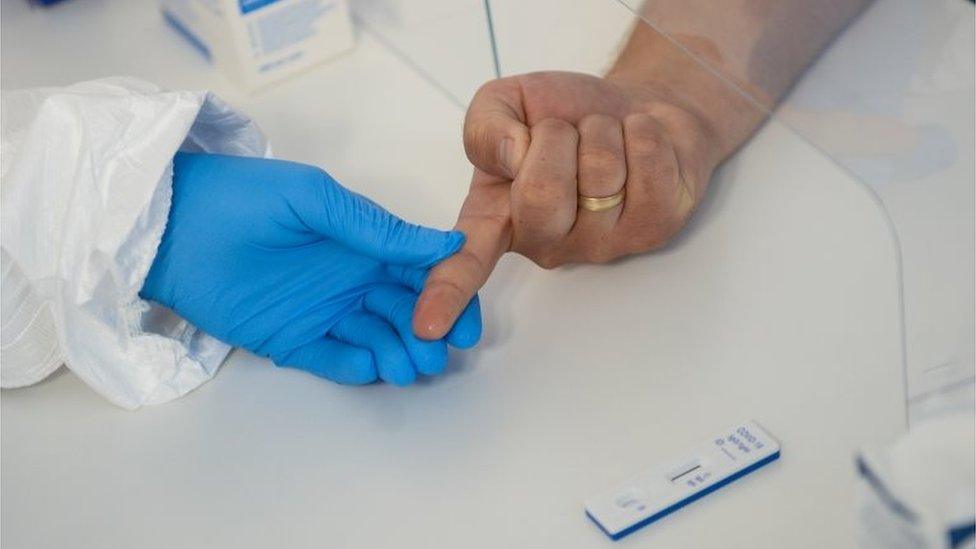Coronavirus: Scientists publish advice to government
- Published
- comments

Scientists advising ministers on Covid-19 feared people would deliberately try to catch the disease or buy fake test results if "immunity passports" were introduced, newly released papers show.
Documents from the Scientific Advisory Group for Emergencies, external (Sage) suggest there were fears about people "gaming" the system and returning to work.
The 16 Sage documents cover the science and ethics advice around coronavirus.
The release comes a day after the committee's membership was made public, external.
The Sage papers say that while antibody testing - a blood test to check if people have had the virus in the past and now have some immunity - has the potential to help get people back into the workplace and out of lockdown, there are risks.
The idea of immunity passports - where people carry documented proof that they have immunity because of a past infection - has been suggested as an option in the UK if a reliable antibody test can be found and mass produced.
Experts on the scientific pandemic influenza group on behaviours (SPI-B), which feeds into Sage, were worried that the tests may not be accurate enough, meaning some people might go back to work thinking they had immunity when they did not.
There was also concern that those who believed themselves to have immunity may stop washing their hands.
"There is some evidence from previous public health crises that misunderstanding test results can affect adherence to risk-reducing behaviours," says the document.
The advisers add that people who are tested and who have no immunity might try to hide away and perhaps "seek to avoid attendance at work entirely. "
The group also suggested some people might try to game the system, buying fake test results for their immunity passport or purposely seeking to catch coronavirus.
The records also reveal:
The lockdown decision was taken by Prime Minister Boris Johnson after Sage was presented with modelling evidence suggesting intensive care units across the country would be swamped
Lockdown restrictions should be eased very gradually in order to maintain public trust in health policy
At a meeting shortly before the PM ordered the UK's coronavirus lockdown, scientists were warning that the previous guidance needed to be toughened up and combined with "hard-hitting emotional messaging"
Scientific advisers said that the government should tell people not to shake hands - on the same day that Boris Johnson reported he had been "shaking hands continuously", including with people at a hospital where there were confirmed coronavirus cases